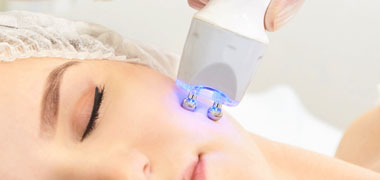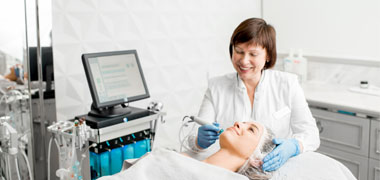
This role has a moderate level of AI exposure. AI can enhance efficiency for some tasks, but this job still relies on human skills and decision-making.
Explore all careersA Dermatologist specialises in diagnosing and treating skin issues, prescribing medications, and liaising with patients and other health professionals.
Get qualified to work as a Dermatologist with a course recognised across Australia. Speak to a training provider to learn more.


In Australia, a full time Dermatologist generally earns $4,200 per week ($218,400 annual salary) before tax. This is a median figure for full-time employees and should be considered a guide only. As you gain more experience you can expect a potentially higher salary than people who are new to the industry.
 Courses.com.au Team
Courses.com.au Team
The number of people working in this profession has grown strongly in recent years. There are currently 470 people working as a Dermatologist in Australia, compared to 370 five years ago. Dermatologists may find work across all regions of Australia, particularly larger towns and cities.
Source: Australian Government Labour Market Insights
 Courses.com.au Team
Courses.com.au Team
A Bachelor of Medical Studies/Doctor of Medicine is an ideal qualification if you’re planning a career as a Dermatologist. This course allows you to specialise in an area of interest such as general practice, paediatrics, emergency care, psychiatry or surgery. You’ll cover medical science and clinical placement but also explore social issues affecting health care.
 Courses.com.au Team
Courses.com.au Team
Browse occupations related to Dermatologist



Welcome to the comprehensive guide for Dermatologist courses in Australian Capital Territory. This exciting field combines science and healthcare to diagnose and treat a variety of skin conditions. Offering one Bachelor of Medical Science course, training providers in the ACT aim to equip experienced learners with the necessary knowledge and skills to excel in dermatology. The program is delivered by ANU (Australian National University), a highly reputable institution known for its rigorous academic standards and comprehensive training curriculum.
Enrolling in a Bachelor of Medical Science can set you on the path to becoming a qualified Dermatologist. This advanced course covers essential topics such as dermatopathology, clinical dermatology, and therapeutic management of skin diseases. Students will benefit from hands-on practical experience and learn from esteemed faculty dedicated to fostering a robust understanding of the field. By successfully completing this program, graduates can look forward to various career opportunities that await them in the healthcare sector.
In addition to focusing on Dermatology, the Australian Capital Territory offers various related job roles that may pique the interest of aspiring healthcare professionals. Occupations like Medical Laboratory Technician, Laboratory Attendant, and Laboratory Technician are in high demand. Additionally, jobs as Laboratory Assistant, Laboratory Supervisor, and various medical roles such as General Practitioner, Surgeon, Psychiatrist, and Paediatrician also present exciting pathways for individuals to explore.
The ACT's healthcare landscape is diverse and rewarding, making it an ideal setting for those pursuing advanced Dermatologist courses in Australian Capital Territory. With a strong focus on local needs and industries, aspiring dermatology students will have the unique opportunity to immerse themselves in a community where they can connect with healthcare professionals and gain insights into real-world practices. This localized approach enhances the overall learning experience and prepares students for successful careers in dermatology and related fields.
Explore the world of Dermatologist courses in Australian Capital Territory today and take the first step towards a fulfilling career in healthcare. By choosing to study at a reputable provider like ANU, you'll be working towards becoming an expert in diagnosing and treating skin conditions, while also having the flexibility to pivot into various other healthcare roles. Stay ahead of the curve in this dynamic field and join a growing workforce dedicated to improving patient health and wellbeing!